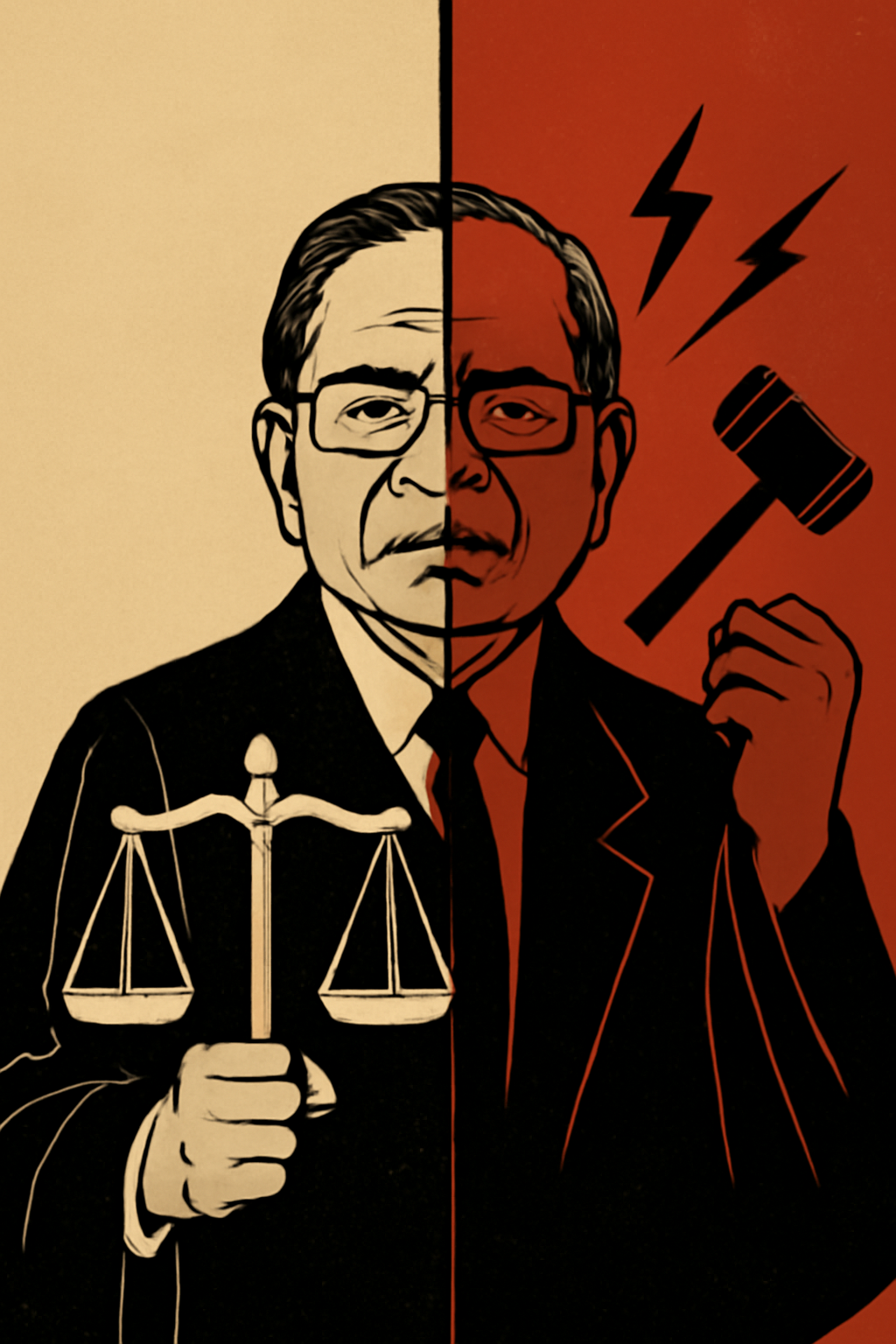Justice ABM Khairul Haque, once hailed as a reformist jurist and respected constitutional guardian, has seen his reputation descend into controversy and division. As the 19th Chief Justice of Bangladesh (2010–2011) and later chairman of the Bangladesh Law Commission, his career reflects a striking contradiction—progressive in its early aspirations, yet later overshadowed by decisions and public positions that triggered allegations of political alignment, judicial overreach, and the erosion of democratic safeguards.
In the early phase of his leadership, Haque made contributions that earned praise from legal scholars and the public alike. His directive to deliver Supreme Court verdicts in Bengali was a landmark reform, dismantling the linguistic barrier that had long excluded ordinary citizens from accessing legal rulings.
However, his trajectory shifted dramatically with the Supreme Court’s 2011 decision to annul the 15th Amendment to the Constitution. This amendment had established a non-partisan caretaker government to oversee national elections—a measure seen as essential for maintaining electoral neutrality in the country’s polarised political environment.
The court’s short order initially allowed the system to continue for two more elections, appearing to strike a balance. Yet the full verdict, released after an inexplicable 16-month delay, excluded this clause. The discrepancy drew sharp criticism from legal experts and opposition parties, particularly the Bangladesh Nationalist Party (BNP), who accused Haque of tailoring the ruling to benefit the incumbent Awami League government by removing a key electoral safeguard.
The government’s swift passage of the 15th Amendment, which abolished the caretaker system altogether, only deepened public suspicion. Subsequent general elections in 2014, 2018, and 2024—each marked by low voter turnout, opposition boycotts, and allegations of widespread manipulation—were widely seen as consequences of that ruling.
Haque’s verdict, initially framed as constitutionally grounded, came to symbolise a judicial turning point that enabled executive consolidation. Following the Awami League’s fall in 2024 during a popular mass uprising, Haque faced several lawsuits, including charges of fraud and treason, though some were dismissed due to lack of evidence. Nonetheless, the legal backlash underscored enduring public resentment. He has since ended up in police custody as of Thursday.
Controversy deepened in Haque’s post-retirement role as chairman of the Bangladesh Law Commission. His public criticism of the 2017 Supreme Court verdict striking down the 16th Amendment—which had aimed to reinstate Parliament’s power to impeach judges—was sharply criticised. Describing the verdict as “misconceived” and “undemocratic”, Haque appeared to defend increased legislative control over the judiciary.
This stance, seen as aligning with the ruling party, was widely condemned by pro-BNP legal voices, who viewed it as a betrayal of judicial impartiality. Conversely, Awami League supporters welcomed his remarks, reinforcing perceptions of partisan bias and undermining the credibility he had previously enjoyed.
Haque became the subject of sustained political criticism. BNP leaders accused him of enabling electoral manipulation and weakening democracy. The Bangladesh Jatiyatabadi Ainjibi Forum even demanded his prosecution for undermining constitutional norms. While politically charged, these reactions reflected a broader perception that the judiciary under Haque had surrendered its independence.
What, then, went wrong? Haque’s descent into controversy was not caused by a single verdict but by a series of decisions and public stances that increasingly appeared politicised. His early record reflected a commitment to democratic values, but later actions suggested a willingness to accommodate political expediency. The delayed and inconsistent handling of the 13th Amendment verdict, his defence of legislative control over the judiciary, and his silence on repressive laws collectively painted the image of a jurist more aligned with executive interests than with constitutional balance.
The implications of this trajectory are far-reaching. Haque’s rulings contributed to the dismantling of institutional checks on electoral abuse and undermined public confidence in judicial neutrality. The judiciary—once seen as a bulwark against executive overreach—has come to be viewed by many as politically compromised. Unless structural reforms are undertaken to restore judicial independence, transparency, and accountability, this erosion of trust will likely endure.
In retrospect, Justice Khairul Haque’s career serves as both a cautionary tale and a critical lesson. A legacy that began with promise and reform was ultimately marred by decisions that weakened democratic norms and judicial credibility. His descent into controversy highlights the risks when legal authority is perceived to serve political ends.
For Bangladesh to move forward, it must address the systemic vulnerabilities that allowed such influence to flourish—by reinstating electoral safeguards, defending judicial autonomy, and ensuring that constitutional principles cannot be manipulated by those in power.


